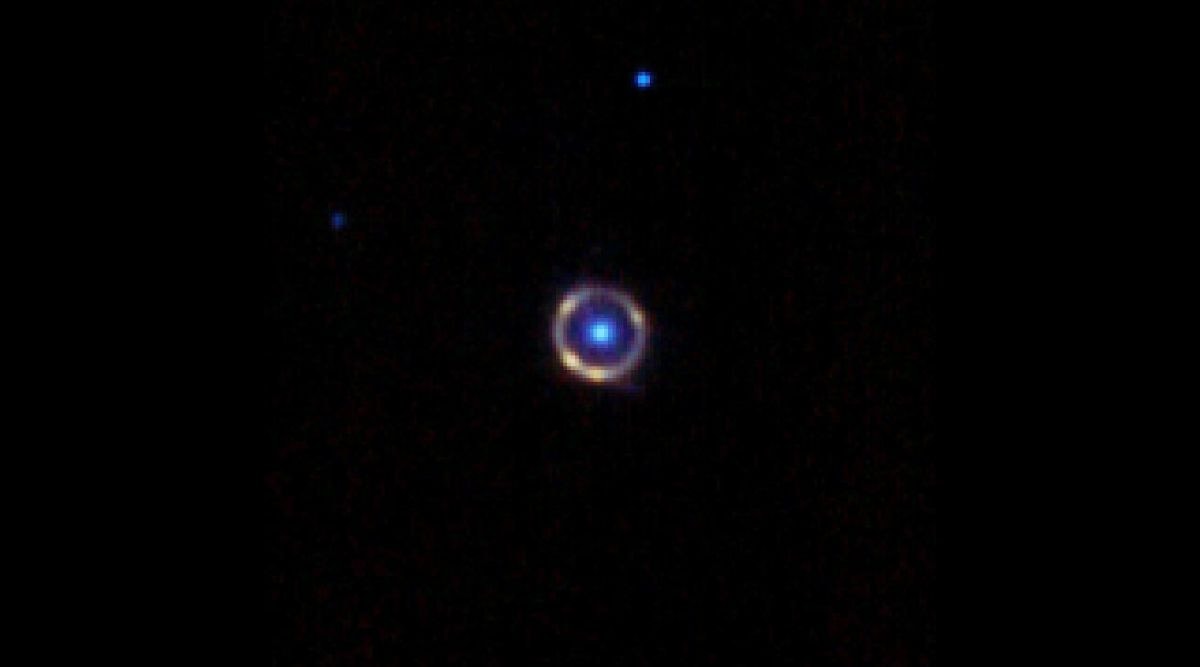The James Webb Space Telescope has captured an image of an almost perfect “Einstein ring.” An Einstein ring is a ring of light created when light from a galaxy, star or other light-emitting cosmic objects passes near a massive object before it reaches the Earth, or in this case, the Webb telescope.
When this happens, gravitational lensing causes the light to get diverted and if the source, lens and the observing element are all in perfect alignment, this light appears as a ring. This particular example was formed from the light of a distant galaxy SPT-S J041839-4751.8, which is around 12 billion light-years away from our planet, which also makes it one of the oldest galaxies in the universe.
From Webb’s point of view, this galaxy is positioned directly behind another galaxy that is so massive that its gravitational pull warps space and time. The blue object in the centre of the ring is this foreground galaxy. As the light from the background galaxy travels to the Webb telescope, it has to cross the warped space-time near the foreground galaxy. This is what makes the light appear like a curved ring.
 Einstein rings are formed when light from distant cosmic objects travel through space-time warped by massive objects. (Image credit: NASA/ESA/CSA/STScI/ u/spaceguy44 on Reddit)
Einstein rings are formed when light from distant cosmic objects travel through space-time warped by massive objects. (Image credit: NASA/ESA/CSA/STScI/ u/spaceguy44 on Reddit)
Space.com reports that this image was posted by Reddit user Spaceguy44 on the r/Astronomy subreddit on the platform. Spaceguy44’s Reddit bio proclaims that the user is an astronomy grad student.
The image was captured using the James Webb Space Telescope’s MIRI (Mid-Infrared Instrument) . The Reddit user downloaded the Webb telescope data and processed it and colourised it using software suites including Astropy. Further processing was done using GIMP, an open-source Photoshop alternative.
!function(f,b,e,v,n,t,s)
{if(f.fbq)return;n=f.fbq=function(){n.callMethod?
n.callMethod.apply(n,arguments):n.queue.push(arguments)};
if(!f._fbq)f._fbq=n;n.push=n;n.loaded=!0;n.version=’2.0′;
n.queue=[];t=b.createElement(e);t.async=!0;
t.src=v;s=b.getElementsByTagName(e)[0];
s.parentNode.insertBefore(t,s)}(window, document,’script’,
‘https://connect.facebook.net/en_US/fbevents.js’);
fbq(‘init’, ‘444470064056909’);
fbq(‘track’, ‘PageView’);







